I can’t believe that so much time has passed since I last wrote. I keep getting stalled, busy on projects. But I’m constantly thinking: I should update my life.
First, let me apologize that there are no photographs for you to look at. I spent several hours last week compiling snapshots from the past month but immediately afterward my laptop crashed. It still isn't fixed but I wanted to write something anyway. No pictures is worth the following one million words.
Today is the fourth day of a cramped belly, aching bones, desperate lunges to the toilet. I’m in the med unit taking doses of antibiotics for the dysentery I’ve been suffering through. My body goes through cycles of shivering cold that makes my stomach cramp and my lungs seize followed by bouts of feverish sweating that causes drops of water to drip from my pale, pasty flesh. Sounds dramatic. Yesterday’s attempt to drink a glass of water resulted in projectile vomiting. I’ve fouled my underwear more times than I care to recollect.
But I should say that I’m finally getting better. The Ciprofoxacin is killing the bacteria that made their home in my gut. I haven’t eaten anything for days so there’s hardly anything in my stomach to give me trouble. But when you’re sick like that, days go by like months and I can hardly remember staggering into the med unit covered in sweat, my face hanging off my head. Tammy says that I’m hilarious in my delirious yammering.
Before this, I was living for a few days at the nicest hotel in The Gambia: The five star Sheraton on the coast across from Ghanatown. We had our semi-annual All-Volunteer meeting where the Peace Corps Administration told us all how valuable we are, what we should improve upon, and how the new budget from Washington still doesn’t begin to cover our expenses. But going from grass mattresses to cloud-like pillows, bucket-baths to hot showers in glass enclosed bathrooms, the prickly heat of humid rainy-season Gambia to air-conditioned rooms with iced sodas will make anyone feel valued. Buffet dinners, pool-side beverages, ocean breezes.
I spent nearly the last two months on trek conducting the Feed the Minds sponsored “Freebee” training. It was truly a rewarding experience and I enjoyed the opportunities to work with beekeepers all over The Gambia. Many of the people we contacted were inexperienced but interested in learning about beekeeping. Others though had a lot to teach me. It gave me the chance to harvest from grass hives, log hives, and hives made from broken pounding bowls. I got to observe the difference in honey production from different regions here. Some places are densely forested with silk cottons and cashews while others are open savanna with a few baobab trees. Some colonies were old and some brand new.
I travelled with three of my Gambian counterparts- Karamu, Kaddy, and Gibril- and my very capable Bambara driver Abdoulie (who I once watched melt a broken car battery terminal over an open fire and then pour it into a mud mold to repair the one that had broken in our truck). We returned to all the villages we went to last autumn to see what people had been up to. On the first trek we had taught people how to weave grass hives and encouraged them to place them in areas where bee-fodder was available. This time we brought protective gear with us and took the participants out into the bush to inspect the colonies and to harvest honey. Sometimes the participants had built Kenyan Top-Bar hives (KTBs) or grass hives that we could spend time around demonstrating proper management techniques. For almost all of the people, this was the first time that they had really had the chance to inspect inside a hive. Even experienced honey hunters in The Gambia work in harried and quick-paced sessions with too much smoke on moonless nights due to their lack of protective gear.
We were able to take the time to show the difference between brood comb and honey comb, between capped and un-ripened honey. We are trying to teach people that the quality of honey will affect the price they can set and that by taking only the best capped honey they can make more money. Honey-hunting in The Gambia is traditionally done by men and older boys because of the associated dangers of wandering in the bush at night and the accompanying stings of harvesting. But we were able to convince several women to come with us and wear the veiled garments and rubber boots. It was especially rewarding to see the women get the opportunity to work with us and several of them seemed quite inspired by the time we were finished.
For my own part, getting to work around so many different colonies was highly educational. At one site, nobody had had any luck attracting colonies but we wanted to have honey and wax for the second day when we would teach about processing. Someone mentioned some wild bees high up in a baobab tree a little ways from the village. That night we went to the bush and spotted the colony about forty feet up in a tree that must have been over two-hundred years old. We decided that I should go up. We found a homemade ladder that was rickety and poorly constructed with too much space between the rungs and about ten feet too short. We threw a rope over a branch just above the hole where the colony resided. The ladder was tied to the rope and lifted until it almost reached the colony. I was placed on a man’s shoulders and lifted up to the ladder that was spinning and dangling from the rope. Of course being enshrouded in my beesuit, gloves, and rubber boots made me even more awkward than I would normally be clinging to a swaying ladder in the dark with angry bees circling me, sweat blinding me, and fear pounding through my veins.
From the man’s shoulders I reached high and grabbed the bottom rung of the ladder and pulled myself up. The baobab was all I could see because of the hooded veil. I hung there for a moment gathering strength and then slowly pulled myself up. Once I stood on the bottom rung I breathed deeply to try to calm down. I was scared of falling. There were at least twenty people gathered around below, the colony was still so far above me, and my heart was pounding out of my chest. I reached up to the next rung and pulled myself up. And again. The wind was blowing and my own movements were causing the ladder to swim around; banging into the tree and then thrusting away into the dark. Flashlights bounced around like klieg lights and a bon fire gave the forest a weird glow. I pulled myself up to the next level and then the next. My arms were weak and shaking, the rubber gloves filled with sweat, the ladder to and fro. Finally I reached the top rung but realized that it was too low. I’d have to stand on it and wrap my arm around the rope that I was dangling from to reach the hive. I pulled on the other rope which brought my bucket and smoker up to me. The bees were aggressive; the hive at eye level was huge and probably had never been harvested. It was quite a trick to keep one hand wrapped around the rope while I used the other to pump smoke into the hive. The bees smeared on my veil and the smoke in my eyes all but blotted out the night. For one brief moment I was able to look around at the night: Stars through the sparse limbs of the baobab, a sleight breeze, people below illuminated by the fire they’d built. My fear of falling subsided. I knew that this is what I had come here to do. I was doing something different; trying something that tested my physical and emotional strength. Though I had been stung a few times through my suit and could feel the burn, I felt strong and clear. I tried to cut comb away with my hive tool until I fumbled it and dropped it onto the head of one of the men below. Without it, I just grabbed at comb with my hand and lumped it into my bucket. Eventually I reached brood comb and stopped harvesting. I lowered the bucket down and then slowly brought myself back down the ladder. By the time my quivering body hit the ground, half the bucket of honey had been eaten.
On that trip I also did a few other things I had not yet done here. I harvested honey from wild bees who had built their hive in an abandoned termite mound. I inspected colonies hived in water jugs and baskets wrapped with rice bags. I learned bee-terminology in Mandinka, Serehule, and Wolof. At a water pump in a Fula village I found a small swarm that had probably lost their home in a nearby bush fire. They were clustered on the wet concrete at risk of being drownded and were remarkably docile- a result of being engorged with honey for their escape and most likely exhausted. The people pumping water thought this Tubob was insane as I reached my naked hand into the cluster of bees and gently moved them around until I found the queen. I lifted her and cupped her in my hand but she took flight. It took several minutes of frantic searching before I found her again floating in a bucket of water. I fished her out and Karamu helped me clip her wings. We returned her to the cluster until later that night when we married that small colony with a larger one that we were re-housing from a pounding bowl in the village to a KTB in the bush. I also finally ate some brood which is considered a delicacy that gives men their "strength." The raw brood straight from the comb is salty and too watery to be appetizing but I rather enjoyed the satisfying pop in the mouth of the cooked ones.
All in all, the “Freebee” training should be considered a success because we contacted so many people in the rural areas and taught many aspects of beekeeping. Men, women, and children attended the trainings and some seemed genuinely interested in getting involved. A few months ago, I wondered if we would even get the chance to work on the project because of budgetary and administration problems. And we finished just before the first rains fell in The Gambia.
Aside from that, I’ve been working on getting to know my new community. It hasn’t been easy since I’ve been away so much. Gunjur is pleasantly large and I am able to maintain a certain anonymity there that was impossible in my old village. For some, Peace Corps is all about integrating into a community and developing a strong relationship with their host family. For me, having come here as someone who hasn’t really set-root in any particular place and who left home almost 20 years ago, the desire to bond has never really been there. I am more comfortable roaming. I enjoy that my new guardians treat me more like a renter than a family member. Sometimes, if I were away from my old village for too long I would have to give small gifts and explanations to many people who wanted to know where I had been and why I was away so long. Now, I don’t feel so guilty if my work keeps me in Kombo or on the move elsewhere in The Gambia.
It’s not that I don’t miss being in Chewel because sometimes I do. The pace there was nice, the environment great for running in the bush or cycling, and I miss my friends there. It’s farming season and I remember fondly last year’s tiring days hunched under the sun weeding fields of rice, millet, and groundnut. I wonder whatever became of my biochar pit. And sadly, because of the All-Vol, I had to miss the wedding of Landing and Fatou, both dear friends who had taken good care of me while I lived in Manneh Kunda. My new home is more like an apartment and the back yard is a concrete slab. I'm away from home too often to even think about planting a garden and I have yet to find a place to put my compost pit.
But there is still plenty of work to keep me busy. The remainder of my service will be spent mostly on beekeeping related projects and helping with the Training for the group of Volunteers that will replace my cohort. They arrive in November. Three of my fellow Volunteers and I are shooting agroforestry training videos to be posted on YouTube and distributed to Peace Corps Volunteers. We've completed four of them thus far using the low-tech gadgetry available here. We've made videos about composting, garden bed preparation, transplanting, and organic pesticides. I'm also the co-editor and tireless contributing writer for our newsletter Natanial Fatty's Miracle Almanac which keeps me busy coming up with joke horoscopes and fake interviews. I am writing a new manual for Gambian beekeeping based on what I’ve been privileged to observe and experience here. I'm also working with some good folks who are trying to establish a non-profit venture here called BeeCause which is a three-tiered initiative directed towards people living in poverty. I'm sure you'll read more about that as time goes on. Finally, Tammy and I are planning a backpacking trip to Cape Verde.
Personal failure: The Hundred Push-Up Challenge. A couple of months ago, a few friends and I found this website that guarantees that you can do 100 push-ups without stopping if you follow the six week plan. Twenty-eight of us signed up in our own informal challenge. Of course, the author of that program failed to consider what affect a protein-poor diet might have on the push-uppers. How much protein do you get from eating baby bees?
Every other day I pushed-up until I collapsed- almost bloodying my nose a few times. Some days I did as many as 175 push ups in half an hour. Not bad considering that in my initial test I maxxed-out at 39 in a row. At the six week mark I did a progress test to see how close to 100 I could do. Ceremoniously I dropped to the prayer mat spread on the floor of my new house. I started strong and wasn't even sweating when I passed number 39. At 45 though my ears started ringing. Number 47 found me leaving either a pool of sweat or tears on the mat below my face. I couldn't tell which because I was "in the zone." I collapsed at 49.
As far as I know, only one of my fellow participants has actually completed the Hundred Push-Up Challenge. If I ever get my appetite back, I plan to try again.
My doctor just came into the room and told me that I am looking better but that she wants me to stay for at least a few more days to give my body a little rest. I told her that I really wanted to get back to work. She replied that the most important aspect of Peace Corps is the cultural exchange and that the work that we do here is a distant second. For me, learning about The Gambia has been an incredibly rewarding experience and having good relationships with my counterparts and friends here has made me feel like my service has been successful. It’s winding down. I’m thinking more and more about leaving and my Close of Service conference (also at the Sheraton thanks to off-season rates) is next month already. While I am fairly confident that I will push my leave date from December to April so I can complete a few things, I know that the end is coming. Having had the rural village experience for most of my time here and now a more urban one, I feel like I am getting to know this place fairly well. And with so much traveling, I now have a fairly broad perspective about The Gambia’s culture and environment. She’s right; the cultural exchange is certainly the most enduring aspect of Peace Corps service.
Minh-Tam and Me in Fuladu


Swarm in Kolli Kunda

Blocks and Bull, Foni Jarrol

Palm and hut, Fajara

Boys in Foni Jarrol

Artist's rendition of a lagoon near Gunjur

Beekeeper, Lower Niumi

On the Bintang Bolong, Foni Jarrol

The Jabang Family and Me, Sifoe

Minh-Tam's Bad Hair Day

Tapping for Palm Wine, Sanyang

Advice to Toubobs, Dakar, Senegal

In Kiang, bushfire behind me

Roasting Groundnuts

Queen Rearing
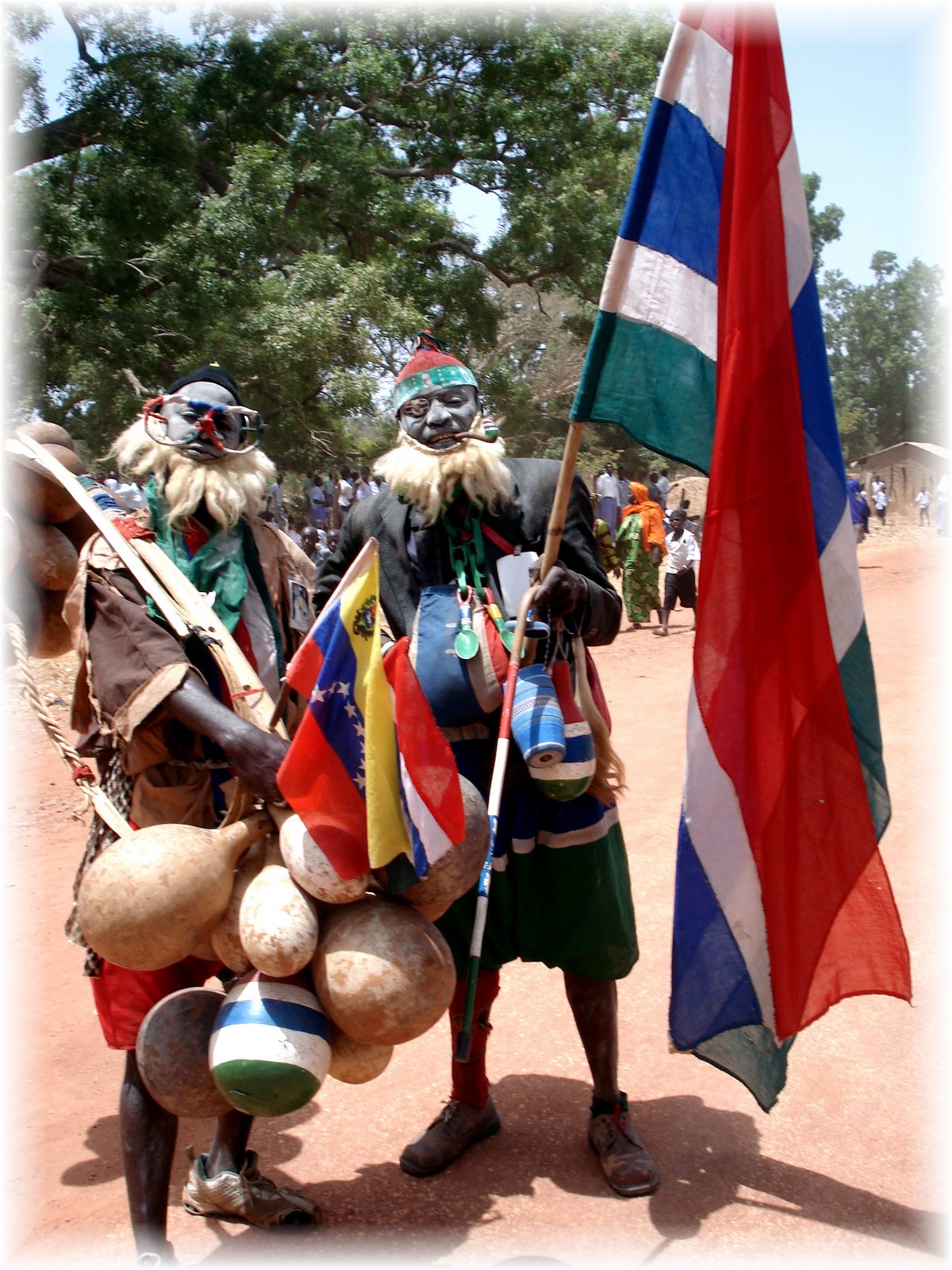
Clowns in Foni Jarrol, The Gambia

Sarjo and Aminata in Foni Bondali, The Gambia
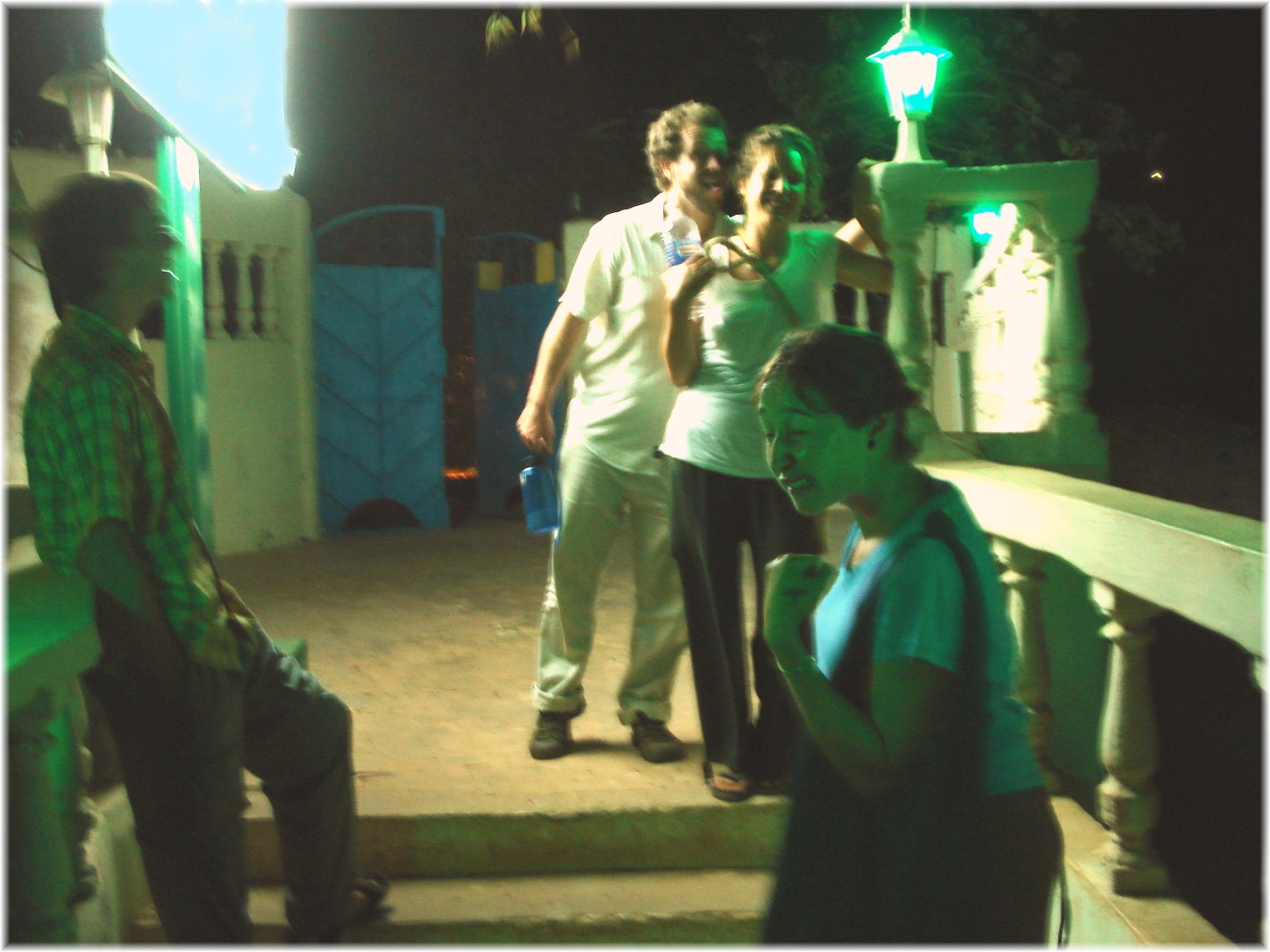
Jeff, Kat, Tyler, and Amber at the Green Mamba
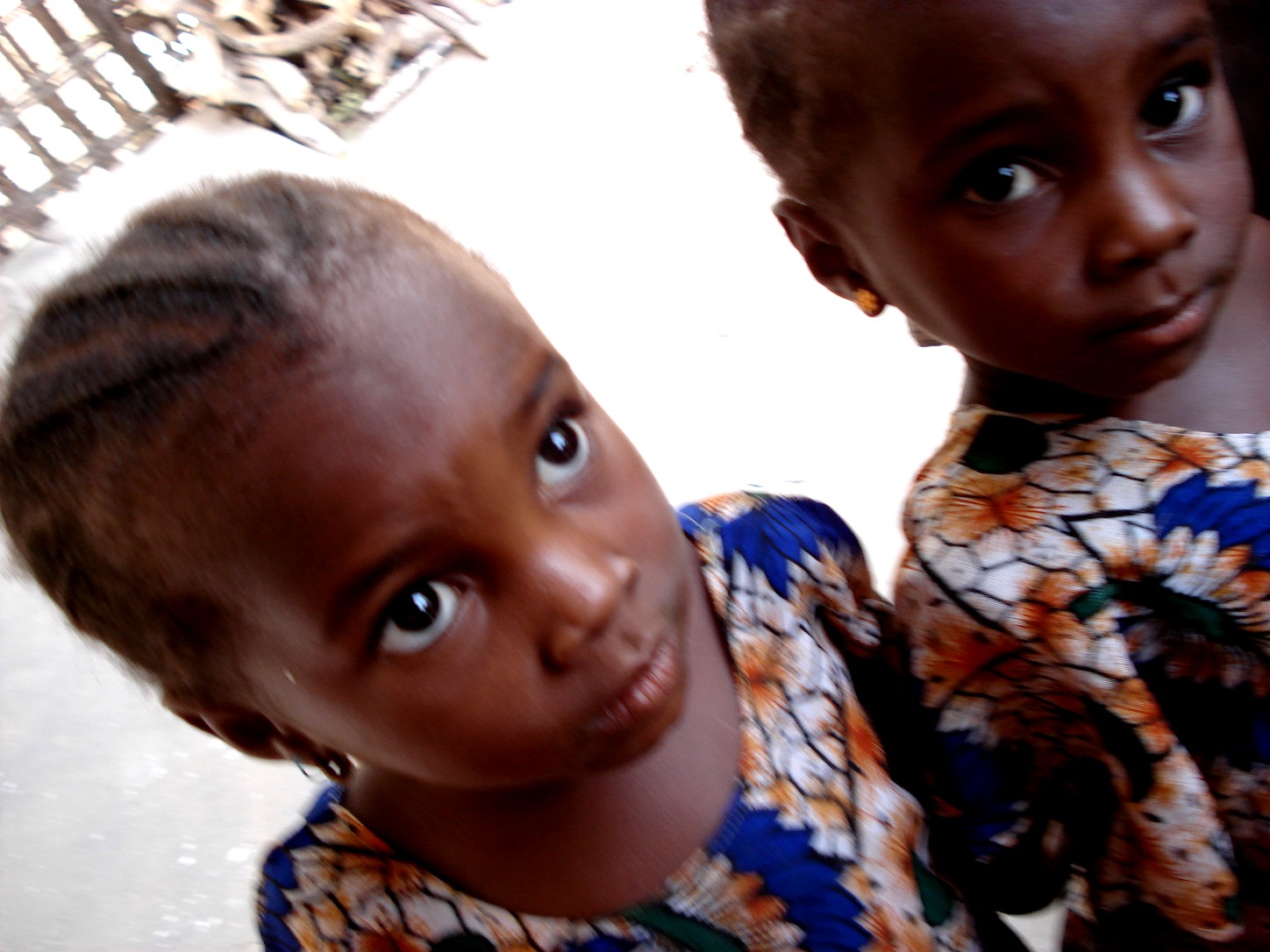
Hawa and Adama
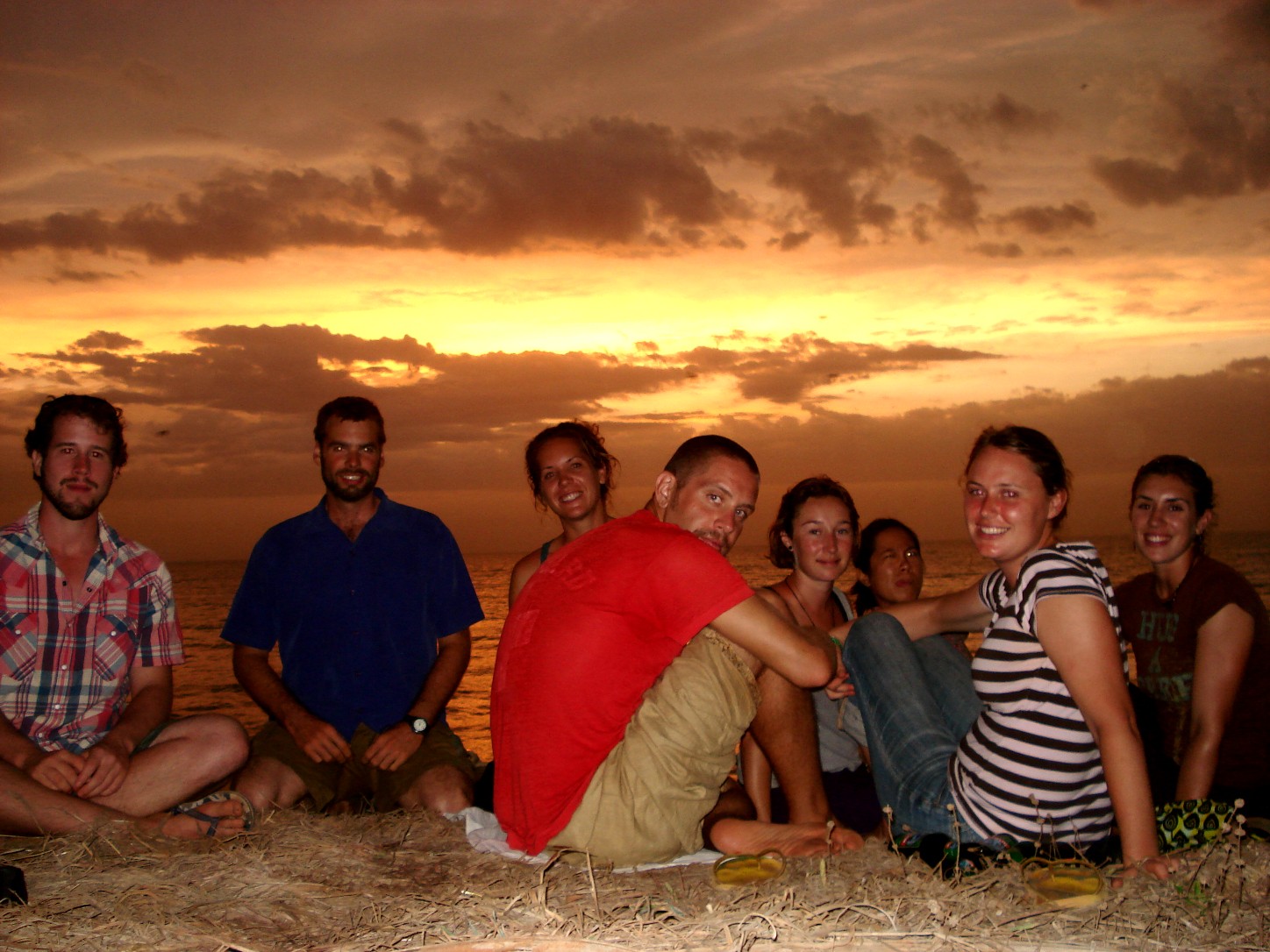
Friends oceanside, The Gambia
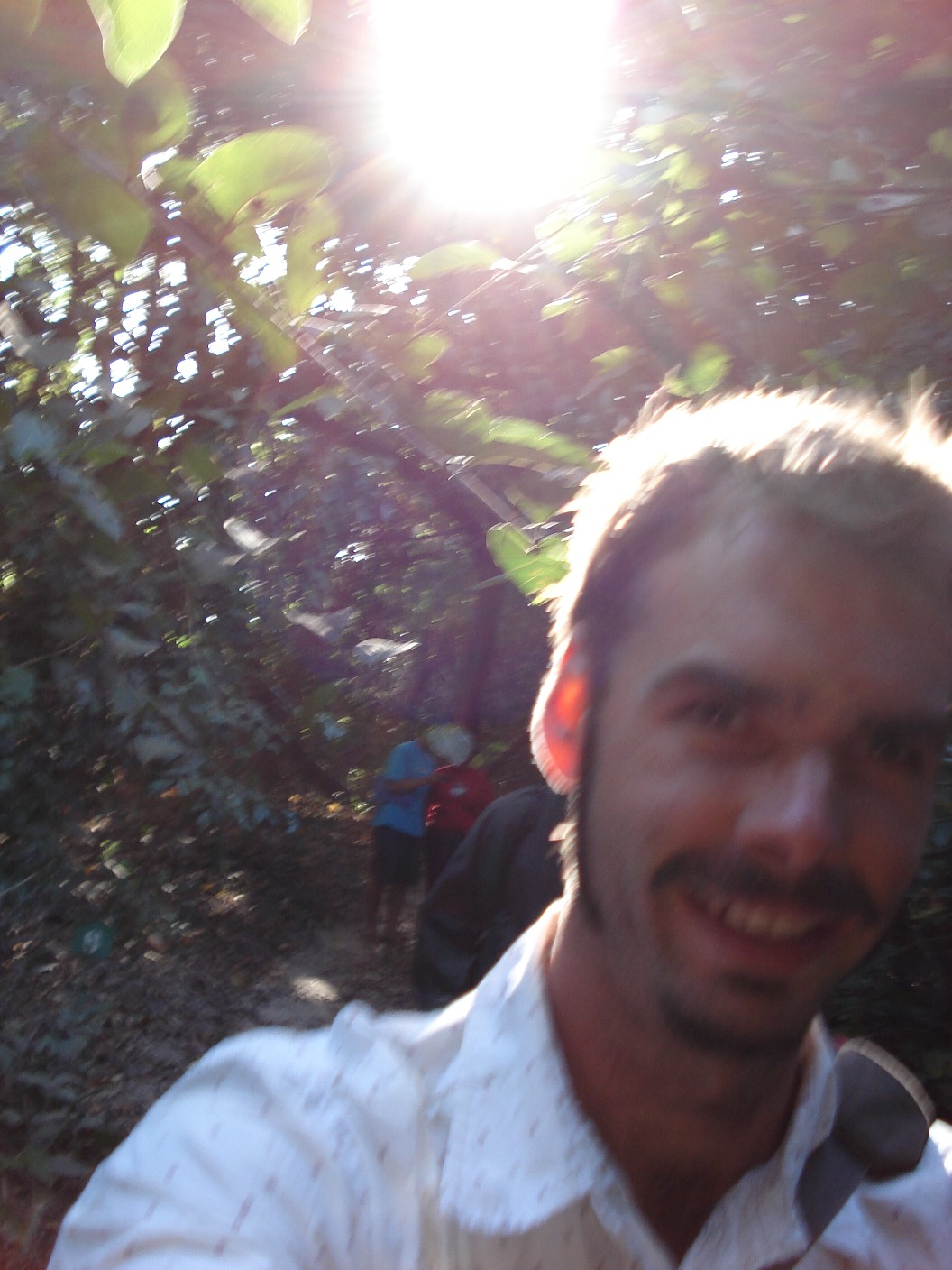
At the Abuko Nature Preserve, The Gambia Western Division

The Atlantic from Fajara, The Gambia

They don't call them killer bees for nothing

Girl with balloon in Kiang District, The Gambia

Baobab tree in Kiang District, The Gambia

My host father Baa Sanna Jallow making rope from baobab bark

Steps in Arch 22, Banjul, The Gambia

Small boy, big snake in Western Region, The Gambia

Bakary pouring attaya, Kiang Region The Gambia

Happy times, Kiang Region The Gambia

My house, Foni Jarrol The Gambia
Friends pages from The Gambia
About Me

- Matthew Traucht
- I was born and raised in farm-country Ohio but didn't really acquire my green thumb until I moved to New Mexico in 1998 and started gardening. I graduated from high school in 1991 and attended classes at Kent State where I studied philosophy. I took a few years off to pursue other interests and then majored in cultural anthropology at the University of New Mexico. I started a small organic farm and sold produce at growers markets and called my business "A Growing Sense." In September 2007 I moved to The Gambia where I am an Agroforestry Volunteer with the United States Peace Corps.
It is always a mistake to try to explain plans for an onward journey. Such plans sound meaningless because they are so presumptuous. Travel at its best is accidental, and you can't explain improvisation.
-Paul Theroux Dark Star Safari
-Paul Theroux Dark Star Safari
















